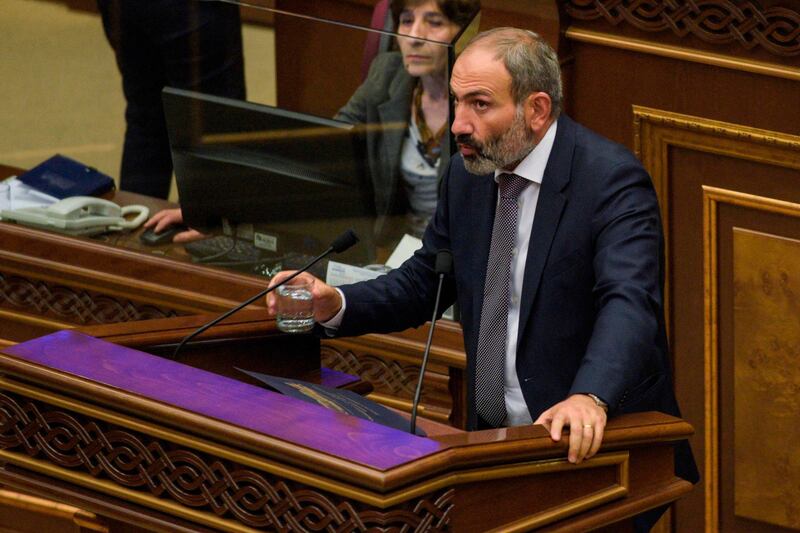The leader of protests that gripped Armenia for weeks was named the country's new prime minister on Tuesday, overcoming the immediate political turmoil but raising uncertainty about the longer term.
Parliament's approval of Nikol Pashinyan by a 59-42 vote capped a fast-moving month of massive protests, the surprise resignation of the prime minister and political manoeuvring.
Many Armenians stewed for years about the country's poverty and widespread corruption, but Mr Pashinyan was able to galvanise the discontent into a mass movement that was occasionally raucous but largely peaceful.
The protests focused on former leader Serzh Sargsyan's transition from president to prime minister, a move that opponents saw as effectively allowing him to remain the country's leader indefinitely.
Mr Sargsyan was president for a decade, but stepped down this year because of term limits. However, Armenia has changed its government structure, giving the prime minister more power at the expense of the presidency.
Soon after Mr Sargsyan stopped being president, he was named prime minister by parliament, where his Republican Party has a majority.
Faced with the mass protests, Sargsyan left the premiership on April 23, six days after his election. In a concession last week, the Republicans agreed to support any prime ministerial candidate nominated by a third of the assembly's members, paving the way for Mr Pashinyan's election.
In the capital's central square, supporters were ecstatic after the vote.
"We chose a new road in Armenia where the driver will be the people and not clans. Jobs will appear, people will return, corruption will disappear," said demonstrator Tigran Azizian, 42, a worker in the city's subway.
But for all the delight, Mr Pashinyan faces significant challenges, not least that the Republicans still have a sizeable majority in parliament.
The hope that his supporters invested in him could fade fast if he does not move decisively to implement changes and call snap elections that could deprive the Republicans of their majority.
Mr Pashinyan also suggested that he will push for recognition of the sovereignty of the Nagorno-Karabakh region – one of Armenia's most difficult and volatile problems.
The region in Azerbaijan has been under the control of ethnic Armenian forces backed by Yerevan since the end of a separatist war in 1994. Fighting periodically breaks out between those forces and Azerbaijani troops stationed on the other side of a demilitarized zone.
In a speech to parliament preceding his election, Mr Pashinyan said that his "revolution will lead to the de-jure recognition of realising the rights of Karabakh to self-determination".
He later announced he would visit the region on Wednesday, a move certain to anger Azerbaijan.






